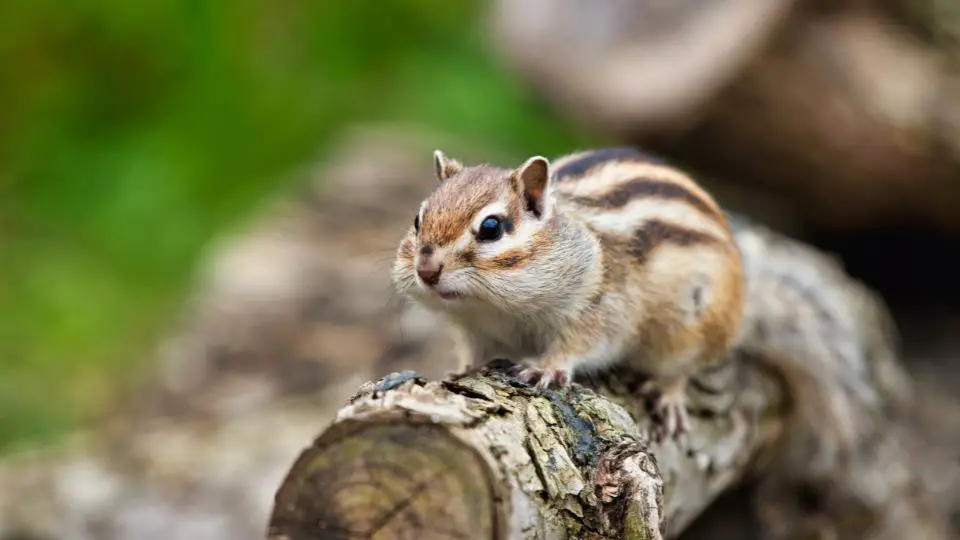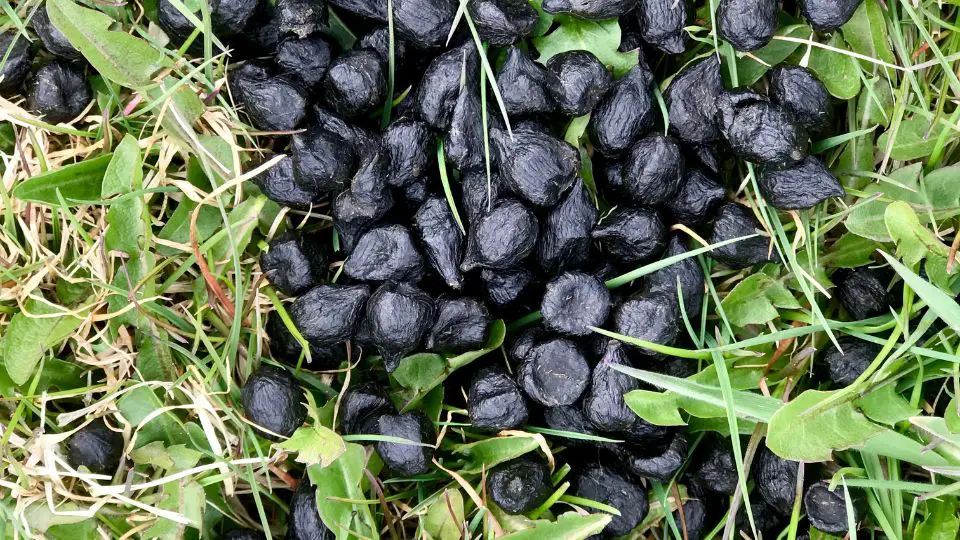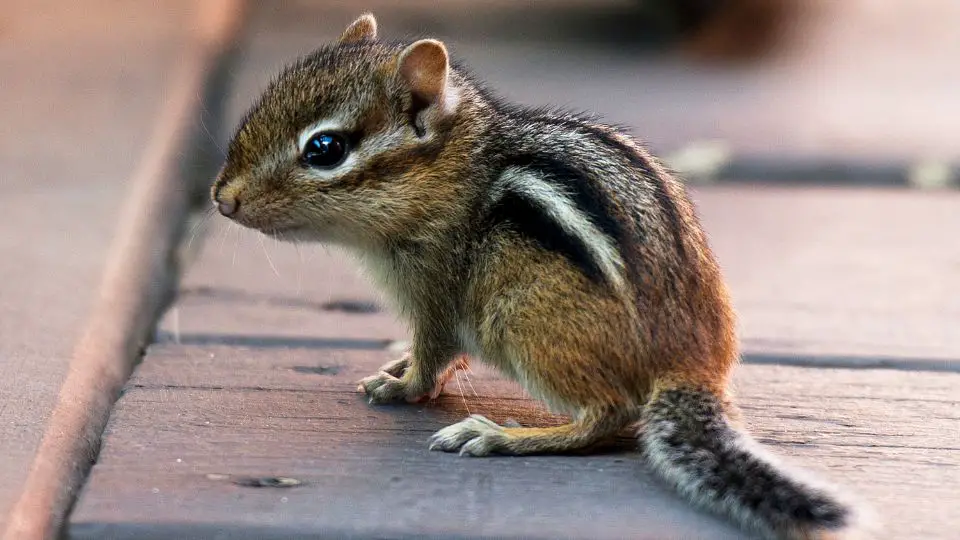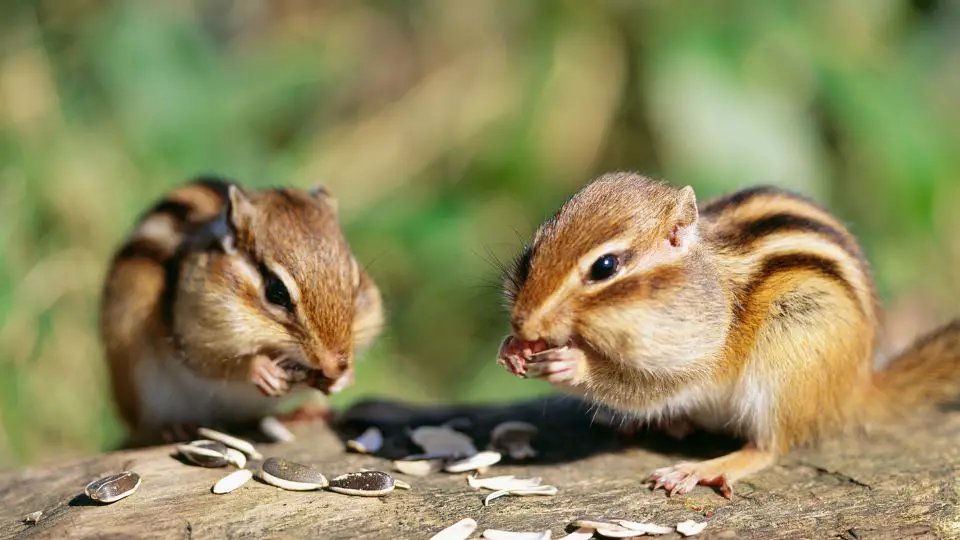The color of chipmunk poop is brown or black. Chipmunks are omnivores and eat a variety of foods. The color of the chipmunk feces will depend on what it most recently ate.
Poop identification is helpful when seeing animal scat because knowing what type of animal you’re dealing with is necessary to understand how to get rid of it. Animal scat can look similar when animals are part of the same species.
Continue reading to know if you are looking at mouse droppings, chipmunk droppings, or rat droppings.
Table of Contents
What does chipmunk poop look like?
Since chipmunks are rodents, their poop looks similar to other rodent feces. Chipmunk poop is usually a dark brown color but can sometimes be black. It is firm to the touch and has an oblong shape.
Both ends of the poop are tapered and pointy. Chipmunk droppings measure to be one centimeter or smaller. Chipmunk waste looks similar to dark grains of rice.
It has been reported to smell similar to other critter poop; it does not have a specifically pungent smell.

Does chipmunk and mouse poop look the same?
Mouse and chipmunk scat look similar. Upon closer inspection, you can see the main difference is that chipmunk poop is slightly bigger than mouse poop.
Chipmunk poop is usually bigger than mouse poop by about one-fourth of an inch. Mouse poop is more commonly found than chipmunk poop.
Since mice and chipmunks have fruit and nuts in their diets, the color of their feces is lighter than rat poop. Both mouse and chipmunk poop are smaller in size than rat poop.
Is chipmunk poop dangerous to humans or pets?
Chipmunk poop, just like other wildlife poop, can be dangerous to humans and pets due to the diseases it carries. Chipmunk poop carries viral and bacterial diseases that can be transmitted to humans and pets.
Some of these diseases include rabies, tularemia, hantavirus, and leptospirosis. These diseases can be fatal to humans and pets. Another disease chipmunk droppings can carry is salmonellosis. Although this disease isn’t fatal, it is still a common disease found in chipmunk poop.
You should never touch critter poop with bare hands because of the risk of catching a disease. Diseases can even be caught from critter poop just by breathing in the air around it.
Pets are more likely to interact with critter poop than humans are since they don’t know any better. Dogs are the pets that would be most at risk since they could dig in, play in, and ingest critter scat.
If you or any your pets have come into contact with chipmunk feces, seek medical care immediately.

What to do if you identify chipmunk poop in your yard?
If you identify chipmunk poop in your yard, you should carefully discard it, especially if you have children or pets. Cleaning up chipmunk feces should be done very carefully to avoid the risk of infection.
When picking up the poop, wear protective gloves, eyewear, and a mask. If the chipmunk poop is dry, put water on it so that the diseases in the poop don’t go airborne when you pick it up.
One solution is to torch the poop so that nobody gets harmed by it. Another solution is to put it in the trash or dumpster and ensure it is tightly secured in a trash bag.
Since chipmunks live in burrows underground, finding chipmunk poop is rare. Chipmunks hide their poop to not attract predators. Chipmunk burrows have a specific section for them to excrete in.
Even if they poop outside of their burrows, they will excrete in a hidden, secure location. This results in humans often not even seeing the scat.
When spotting chipmunk poop or holes in your yard, there are many options you can choose from to handle the issue. You will want to take action since chipmunks can cause damage to your home despite their small size.

How to keep chipmunks away from your house and yard
You can humanely trap and relocate the chipmunk using a live trap. Another option is to use home remedies to scare away the chipmunk.
Home remedies include creating DIY mixtures made with spices such as cayenne pepper, hot pepper, and garlic. Directly spread pieces around your yard or create a spray with water.
Other options are to install items that will deter chipmunks. Ultrasonic animal repellers, motion-activated sprinklers, and reflective tape are several ideas that homeowners use for their chipmunk problem.
If you think you have an infestation, aren’t comfortable handling the chipmunk, or want to leave it to the professionals, you can contact a pest control company.

